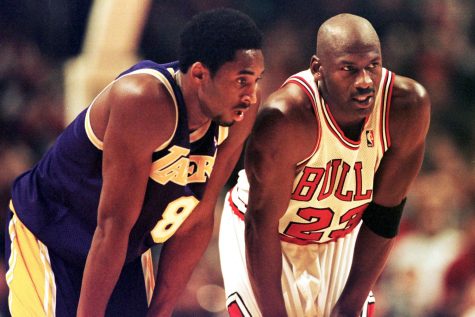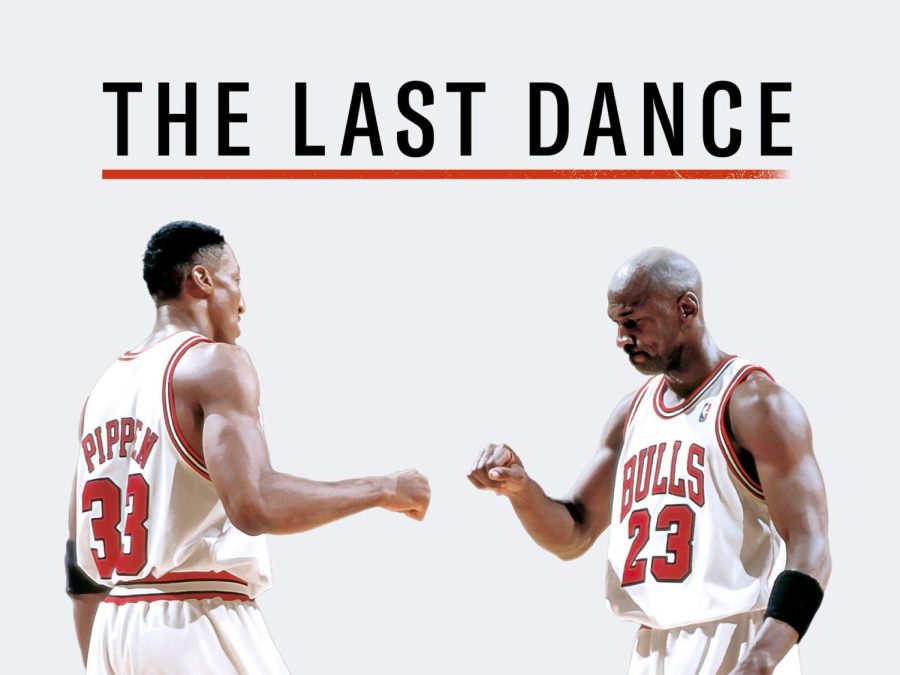The Last Dance: A Mini Review
May 2, 2023
The almost fictional legacy led by the larger-than-life Michael Jordan on the Chicago Bulls from 1984-1998 (with a brief break from 1993-1994) is a hard timeline of disputes, media craze, teeth-clenching games, and managerial issues along with team unity, euphoric game winning shots, and amazing synchronization among the players to cover in only 10 episodes, but Jason Hehir found a way to do it in his documentary of the Chicago Bulls called ‘‘The Last Dance’’, documenting them from the season that Michael Jordan joined the mediocre team up until their 6th championship season in 1998.
Released in 2020, each episode is about an hour, which means a mere 10 hours of footage and interviews to cover the hefty 13 seasons that Michael Jordan was in the Bulls (even documenting his hiatus when he attempted to play professional baseball). Although some teammates (mostly Scottie Pippen) may have differing opinions on Michael Jordan as a teammate and the documentary having such a large focus on him instead of the team itself. It does justice to the legacy that the Bulls’ dynasty left, not only in the world of the NBA but the 90s itself. It cemented basketball as one of the reigning entertainment sports globally, creating superstars such as Michael Jordan, Scottie Pippen, Dennis Rodman, Steve Kerr, John Paxson, Toni Kukoc, and others, as this documentary does not fail to highlight their most impactful moments for the team as well.
The thing the documentary established the greatest was the hardships of being the most famous athlete in the world at the time, as Michael had the entire world looking at him, yet he was more alone than anyone else on the team and arguably in the NBA due to that fact. He lived on for basketball and basketball alone, as the documentary even describes him as sort of a basketball monk, finding peace in the present, not thinking about failure in the past or the potential to fail in the future, which alongside his overworking attitude to constantly make himself better, benefitted him and the Bulls for the best. The interviews given by an older Jordan, Pippen, Rodman, Phil Jackson (their head coach), and other supporting players allows for an insightful retrospective of why some players did the things they did, especially why Jerry Krause and Jerry Reinsdorf broke up the Chicago Bulls, which left many fans of the team pondering and making theories for years.
The collection of old basketball matches, the sprawl of 90s hits, and popular phenomenons of the time would make such a documentary enjoyable for many who lived through the time of the Chicago Bulls dynasty, but it also allows for a gateway into the world of basketball (as it did for me), as it is a stepping stone in the sport of basketball that helped it be as successful and known as it is today. There would be no Lebron, Kobe, Curry, Durant, Harden, Dončić, or Irving without what Michael Jordan brought to the sport, and that influence will last for generations.



